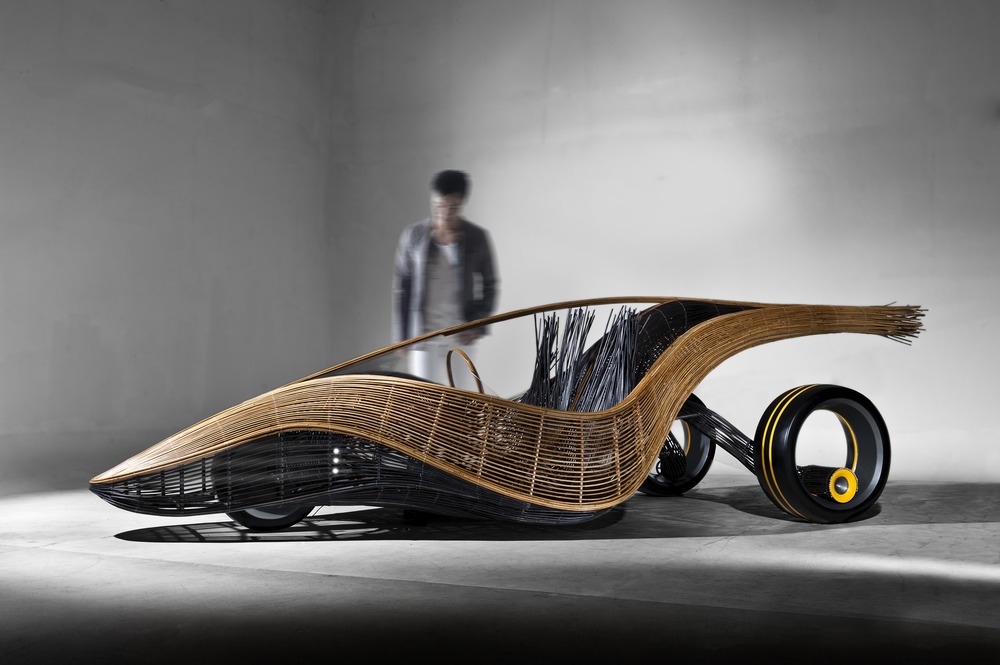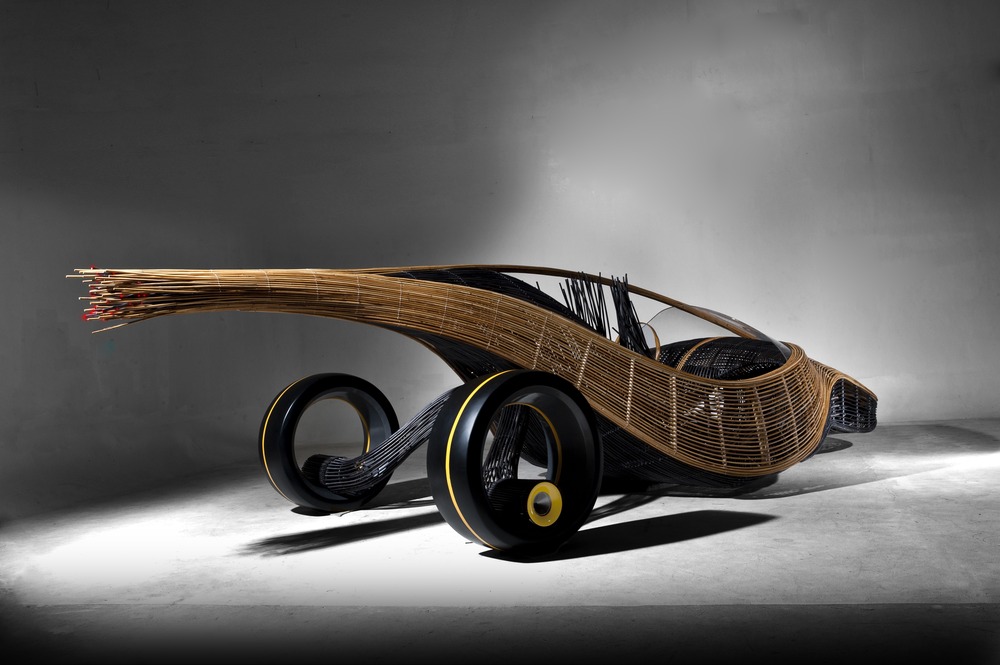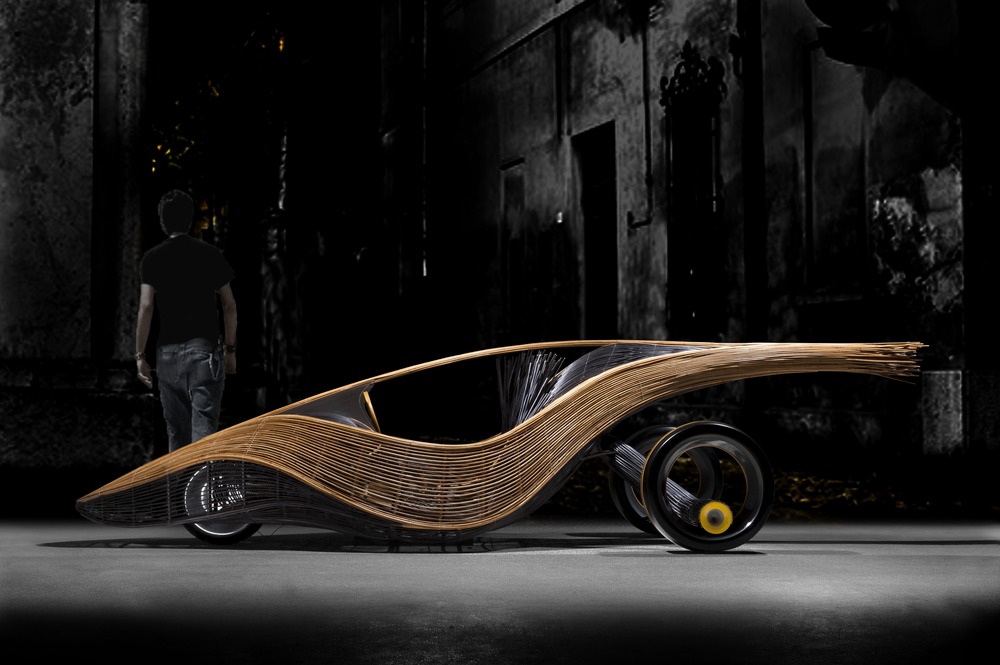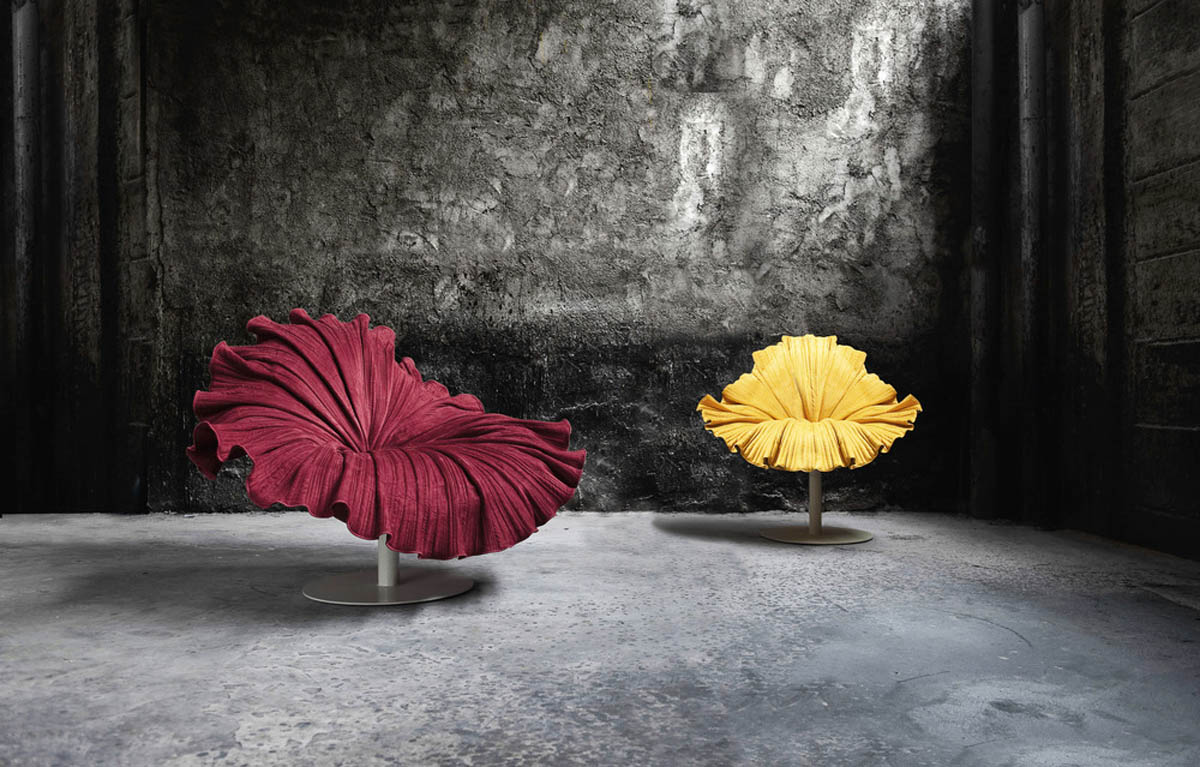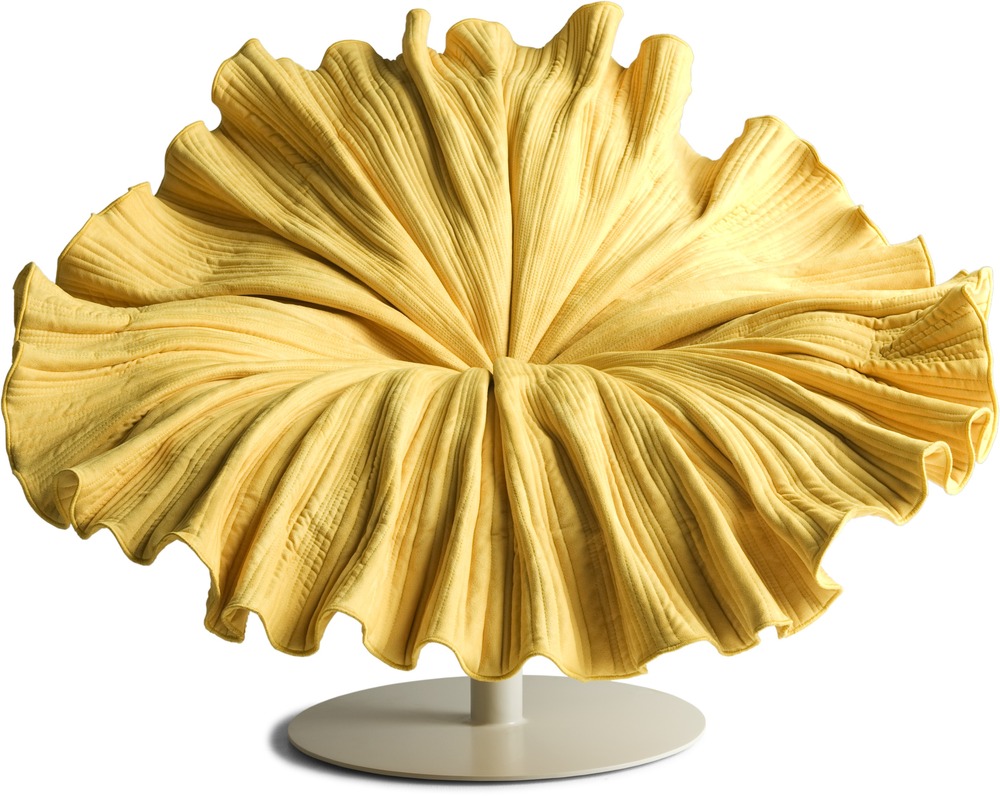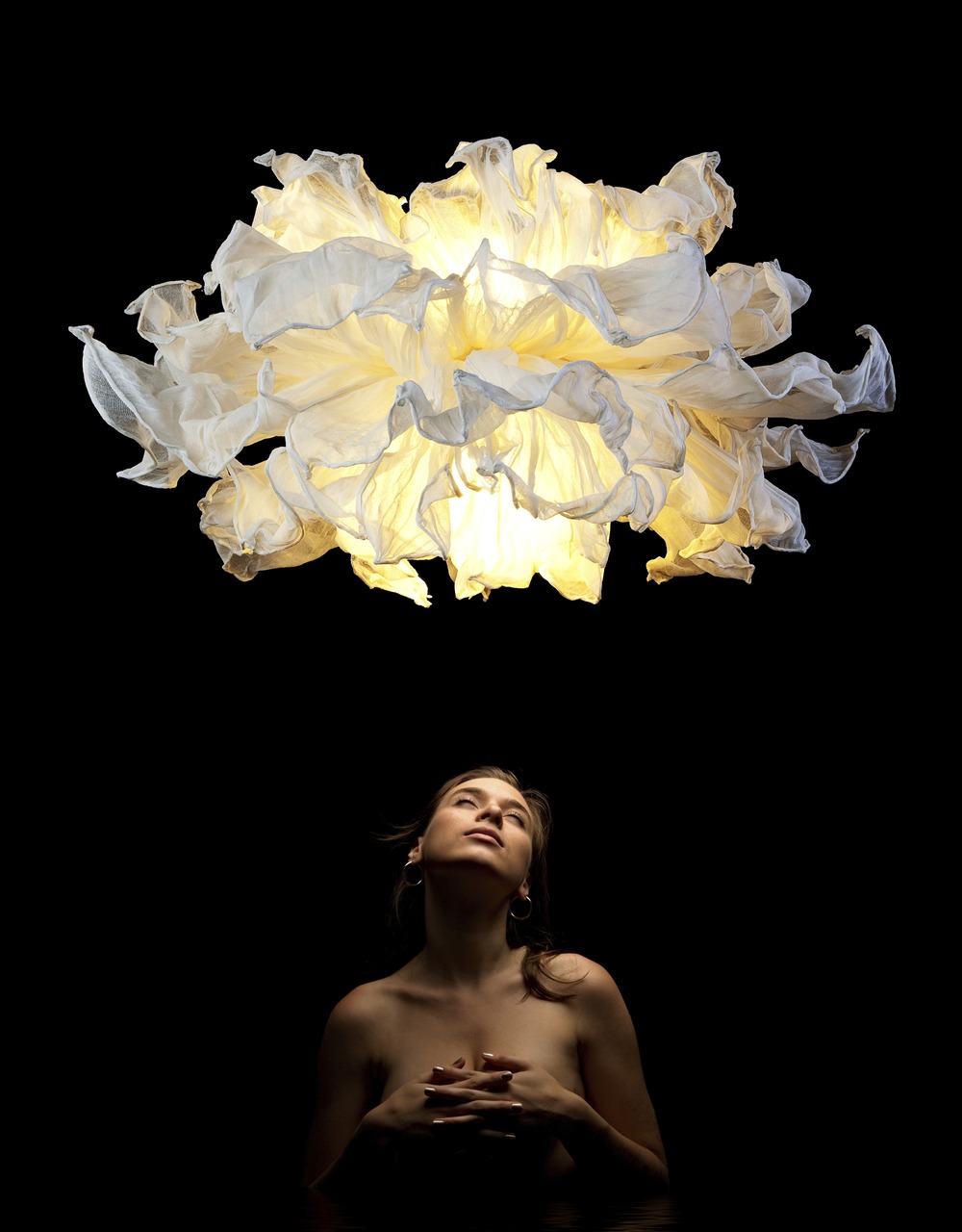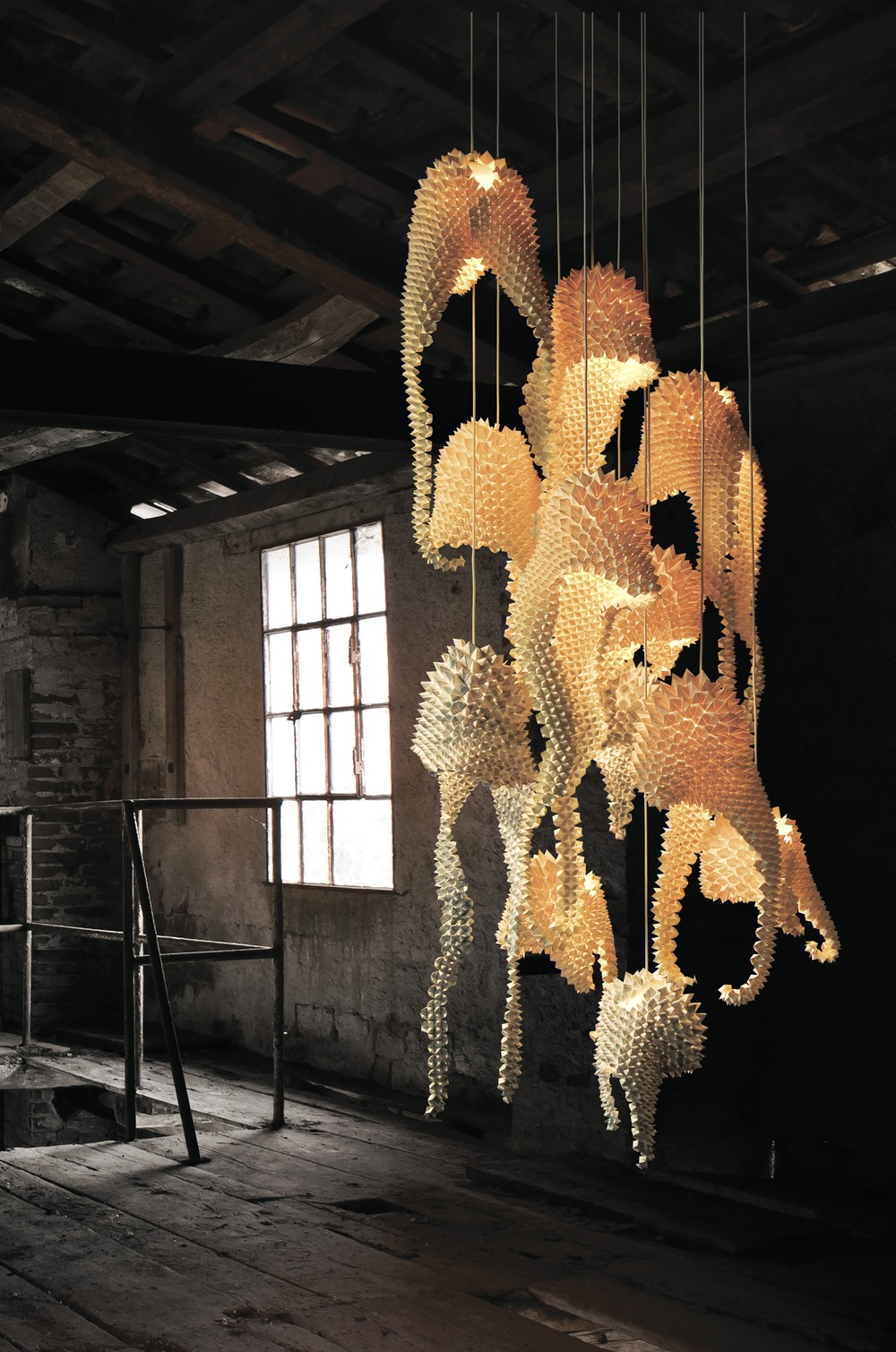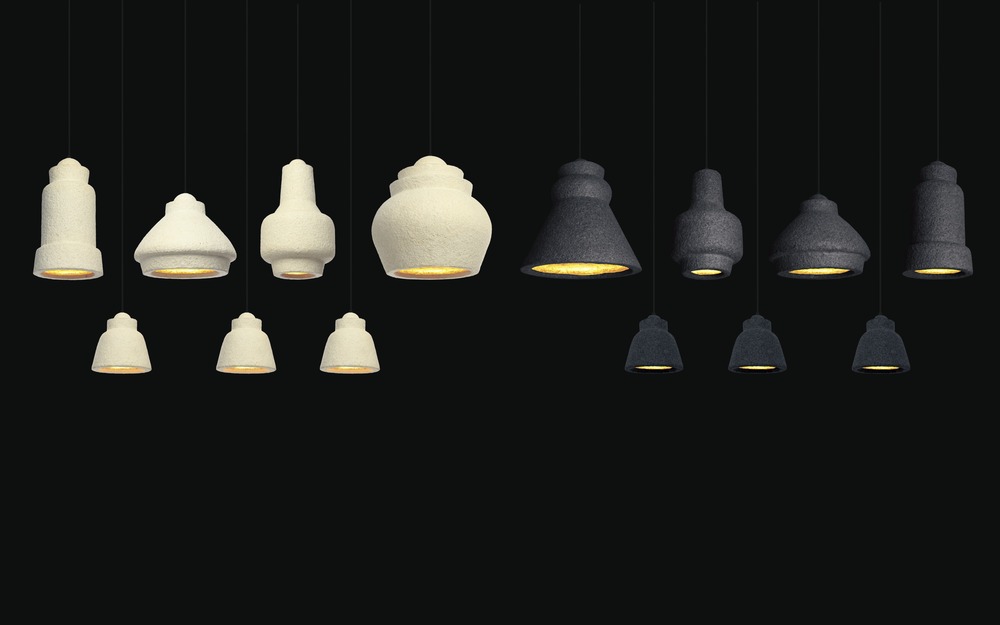Designer: Kenneth Cobonpue
Where: Philippines
Kenneth began his passage to design in 1987 studying Industrial Design at Pratt Institute in New York. While completing his degree, he apprenticed for a leather and wood workshop near Florence, Italy. In 1994, he studied Furniture Marketing and Production at the Export Akademie Baden- Württemberg in Reutlingen, Germany under a private and state scholarship program, and subsequently worked in Bielefeld and Munich.
Phoenix
Kenneth Cobonpue’s creations have earned him recognition at home and abroad. Awards to his credit include 12 Mugna and 4 Katha Awards for design excellence at the annual Philippine International Furniture Exhibition. The Japan Good Design Award was presented for 5 of his designs. In 2004, he won first prize at the Singapore International Design Competition for the Croissant Sofa. Kenneth also won a Golden Shell Award in 2002, a citation given by Philippine President Gloria Macapagal Arroyo, for embodying the ideals of Asian design. In 2003, he was chosen as one of the Ten Outstanding Young Men of the Philippines for his achievement in the field of Arts & Design. In 2005, Kenneth won the Design for Asia Award of Hong Kong, Asiaʼs highest award, for the Lolah Chair. “Wallpaper” magazine also nominated him as one of the icons of contemporary design along with such world luminaries as Philippe Starck and Antonio Citterio.
Phoenix
Phoenix explores the possibility of using sustainable natural materials in transportation design. Kenneth Cobonpue and Albrecht Birkner wanted to create a lightweight yet economically viable concept car made of bamboo, rattan, steel and nylon. Phoenix was entirely handmade by a team of skilled weavers and craftsmen in only 10 days. This project attempts to unveil the future of green vehicles using woven skins from organic fibers mated to composite materials and powered by green technology.
Cars have always been a product of heavy industry using tremendous resources, expensive tooling and excessive energy. Phoenix challenges convention by sourcing renewable materials from the earth and using a frame that is built by hand using very minimal tools and energy. Today, cars are engineered and built so well that they actually outlive their purpose. People replace their cars every 5 years in industrial countries and 10-20 years in developing countries. Because of this, disposal becomes an environmental problem. Phoenix introduces the concept of a naturally woven skin which biodegrades together with the life of the car. Should a carʼs life extend longer than average, this shell can be replaced inexpensively. No longer a product of automation, Phoenix brings back the dignity of the human being and pays homage to the skills of the craftsman. In addition, because it is handmade, frames can be customized according to the needs of the individual.
Bloom
Welcome the organic beauty of the garden indoors. Inspired by a delicate blossom, Bloom is composed of hundreds of fine running stitches that radiate from the center of the seat. Handmade in microfiber stitched over a resin top, Bloom sprouts from a base made of steel.
Recent works have produced critical acclaim within the design community. Several of his designs were selected for the prestigious International Design Yearbook (Laurence King Publishing) 2002 edition, curated by Ross Lovegrove, the 2004 edition, curated by Tom Dixon and the 2005 edition curated by Marcel Wanders. Phaidonʼs new 2007 book & FORK underscores Kenneth’s position as a leader of a new movement incorporating new technologies with crafts. He has appeared on European television including Deutsche Welle and Dutch TV, countless international magazines such as Wallpaper, Newsweek and TIME Magazine, and respected newspapers including The Washington Post and the Shanghai Daily News. Various Cobonpue designs have also appeared in full-length feature films and television such as Oceans 13 and CSI. Kenneth reveals new work each year in design shows from Paris to New York. He also speaks regularly about Southeast Asian design all over the world.





